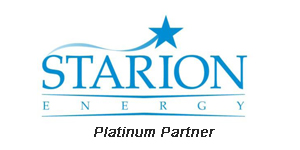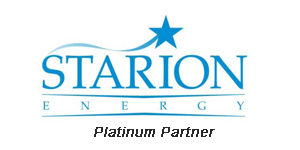This update features policy, regulatory, legislative, and regional developments in Connecticut and New England. The policy updates are compiled by a team recently formed with support from CPES, known as the New Energy Professionals. If you are interested in learning more about the New Energy Professionals, the Policy Committee, or if you have ideas for future policy updates, we would welcome your input and feedback. Please send comments to Kathryn Dube, CPES Executive Director, via email: kdube@ctpower.org.
This week’s features:
- FERC Staff To Hold Technical Conference on Wholesale Markets and State Policies
- Connecticut Legislative Update
- Energy and Technology Committee to Hold Public Hearing on March 7th
REGIONAL AND INDUSTRY DEVELOPMENTS
FERC Staff To Hold Technical Conference on Wholesale Markets and State Policies
Federal Energy Regulatory Commission (FERC) staff will hold a 2-day technical conference on May 1 and May 2, 2017 to discuss the intersection of state policies and wholesale energy and capacity markets operated by the Eastern Regional Transmission Organizations (RTOs) and Independent System Operators (ISOs). According to the Notice of Technical Conference, “Over the years, the rules underpinning competitive wholesale markets have evolved to address a myriad of issues while ensuring the reliable delivery and sale of electricity at just and reasonable rates. In recent years, there has been increased interest by state policy makers to pursue policies that prioritize certain resources or resource attributes. Because the wholesale competitive markets, as currently designed, select resources based on principles of operational and economic efficiency without specific regard to resource type, there is an open question of how the competitive wholesale markets, particularly in states or regions that restructured their retail electricity service, can select resources of interest to state policy makers while preserving the benefits of regional markets and economic resource selection.” According to the notice, the technical conference will foster “further discussion regarding the development of regional solutions in the Eastern RTOs/ISOs that reconcile the competitive market framework with the increasing interest by states to support particular resources or resource attributes.” For more information, visit the FERC website.
For information on the discussions taking place in New England on Integrating Markets and Public Policy (IMAPP), visit the New England Power Pool (NEPOOL) website. IMAPP discussions, launched by NEPOOL in August 2016, are intended to identify potential changes to the region’s wholesale electricity markets to accommodate the public policy goals of the New England states, namely their carbon reduction and renewable energy goals.
CONNECTICUT LEGISLATIVE UPDATE:
Information about the Energy and Technology Committee, including committee meetings and public hearings, is available at: https://www.cga.ct.gov/et/
On Tuesday, March 7, 2017 at 11:00 AM in Room 2E of the LOB, the Energy and Technology Committee will hold a public hearing. The agenda is available at: https://www.cga.ct.gov/2017/etdata/pha/2017PHA00307-R001100ET-PHA.htm
The following raised bills may be of interest to our membership:
- S.B. No. 860 (RAISED) AN ACT CONCERNING CONTRACTS FOR ZERO EMISSION RENEWABLE ENERGY CREDITS AND LOW-EMISSION RENEWABLE ENERGY CREDITS. (ET)
- S.B. No. 861 (RAISED) AN ACT CONCERNING RATEPAYER IMPACT STATEMENTS. (ET)
- S.B. No. 862 (RAISED) AN ACT CONCERNING THE PUBLIC UTILITIES REGULATORY AUTHORITY’S REVIEW OF CLAIMS ARISING FROM CONTRACTS PREVIOUSLY APPROVED BY THE AUTHORITY. (ET)
- S.B. No. 863 (RAISED) AN ACT REQUIRING A STUDY OF TRASH-TO-ENERGY FACILITIES AS A COMPONENT OF THE COMPREHENSIVE ENERGY STRATEGY. (ET)
- S.B. No. 899 (RAISED) AN ACT CONCERNING PUBLIC UTILITIES REGULATORY AUTHORITY ADMINISTRATIVE HEARINGS FOR PURCHASED GAS ADJUSTMENTS, ENERGY ADJUSTMENT CHARGES OR CREDITS AND TRANSMISSION RATES. (ET)
- S.B. No. 900 (RAISED) AN ACT CONCERNING MINOR REVISIONS TO ELECTRIC SUPPLIER COMPLIANCE REQUIREMENTS REGARDING ENVIRONMENTAL LAWS, RENEWABLE PORTFOLIO STANDARDS AND ADVERTISING AND CONTRACT PROVISIONS AND THE PUBLIC UTILITIES REGULATORY AUTHORITY’S REPORTING OF ELECTRIC RATES. (ET)
- Raised S.B. 936: AN ACT CONCERNING TECHNICAL AND CONFORMING CHANGES TO THE ENERGY AND TECHNOLOGY STATUTES. To make technical and conforming changes to the energy and technology statutes.
- Raised S.B. 973: AN ACT CONCERNING A RESIDENTIAL SUSTAINABLE ENERGY PROGRAM. To establish a state residential sustainable energy program for the purpose of financing energy improvements.
- Raised S.B. 974: AN ACT REQUIRING THE STUDY OF ENERGY SOURCES. To require the chairperson of the Public Utilities Regulatory Authority to conduct a study regarding energy sources.
- H.B. No. 7104 (RAISED) AN ACT CONCERNING RENEWABLE PORTFOLIO STANDARD COMPLIANCE REQUIREMENTS. (ET)
- H.B. No. 7105 (RAISED) AN ACT CONCERNING WATER COMPANY RATE ADJUSTMENT MECHANISMS. (ET)
- H.B. No. 7106 (RAISED) AN ACT CONCERNING AUDIT REPORTS FILED WITH THE PUBLIC UTILITIES REGULATORY AUTHORITY. (ET)
- H.B. No. 7107 (RAISED) AN ACT CONCERNING THE INVESTMENT AND USE OF REGIONAL GREENHOUSE GAS ACCOUNT FUNDS. (ET)
- H.B. No. 7140 (RAISED) AN ACT REQUIRING A STUDY OF CLASS I RENEWABLE ENERGY SOURCES THAT SUPPORT THE STATE’S COMPREHENSIVE MATERIALS MANAGEMENT STRATEGY. (ET)
- Raised H.B. 7208: AN ACT CONCERNING THE COMMERCIAL PROPERTY ASSESSED CLEAN ENERGY PROGRAM. To make changes to the commercial property assessed clean energy program.
- H.B. No. 7232 (RAISED) AN ACT REQUIRING THE STUDY OF THE USE OF TECHNOLOGY IN THE STATE. (ET)
CPES does not take a position on these legislative proposals; this is provided for informational purposes only to CPES members.


 Jeffrey Gaudiosi opened the discussion with a look back at how energy was procured in the state of Connecticut after the electricity market deregulated in 1998. Deregulation allowed retail customers to choose a competitive supplier of electricity, but required the state’s electric distribution companies to continue to provide “Standard Service” and “Supplier of Last Resort Service” to customers who did not choose a competitive supplier. He explained that the legislature dictated how electricity was procured for these customers, requiring the utilities to employ a three-year laddering model for Standard Service power procurements. This procurement method involved a series of overlapping wholesale contracts extending over several years, which kept retail electricity prices relatively stable for consumers. This method worked well for many years, Gaudiosi explained, but fell out of favor when Standard Service rates reached record levels and prevented retail customers from taking advantage of declining wholesale electricity prices in the 2009-2010 timeframe.
Jeffrey Gaudiosi opened the discussion with a look back at how energy was procured in the state of Connecticut after the electricity market deregulated in 1998. Deregulation allowed retail customers to choose a competitive supplier of electricity, but required the state’s electric distribution companies to continue to provide “Standard Service” and “Supplier of Last Resort Service” to customers who did not choose a competitive supplier. He explained that the legislature dictated how electricity was procured for these customers, requiring the utilities to employ a three-year laddering model for Standard Service power procurements. This procurement method involved a series of overlapping wholesale contracts extending over several years, which kept retail electricity prices relatively stable for consumers. This method worked well for many years, Gaudiosi explained, but fell out of favor when Standard Service rates reached record levels and prevented retail customers from taking advantage of declining wholesale electricity prices in the 2009-2010 timeframe. David Ferro rounded out the discussion with a look at how consultants and brokers are changing their power procurement strategies based on what is happening in the marketplace. He highlighted natural gas storage volumes as one of the primary drivers of wholesale electricity prices in the U.S. In New England, he pointed to increasing capacity and transmission costs impacting wholesale electricity prices, and discussed the significant turnover in the generation fleet away from coal- and oil-fired generation toward natural-gas fired generation. This, he said, will put additional pressure on the natural gas infrastructure serving the region, which can have a significant impact on wholesale electricity prices. He concluded with a list of seven steps for developing an energy supply strategy – for facility managers, supply chain professionals, and those involved in managing energy procurement strategies. Technology advancements, he said, will be extremely important in creating a “sustainable energy community” where consumers have more control over their energy supply.
David Ferro rounded out the discussion with a look at how consultants and brokers are changing their power procurement strategies based on what is happening in the marketplace. He highlighted natural gas storage volumes as one of the primary drivers of wholesale electricity prices in the U.S. In New England, he pointed to increasing capacity and transmission costs impacting wholesale electricity prices, and discussed the significant turnover in the generation fleet away from coal- and oil-fired generation toward natural-gas fired generation. This, he said, will put additional pressure on the natural gas infrastructure serving the region, which can have a significant impact on wholesale electricity prices. He concluded with a list of seven steps for developing an energy supply strategy – for facility managers, supply chain professionals, and those involved in managing energy procurement strategies. Technology advancements, he said, will be extremely important in creating a “sustainable energy community” where consumers have more control over their energy supply. 




 As for priorities, Senator Formica said that nuclear power and the viability of Millstone Nuclear Power Station will be a major area of focus this session. According to Formica, the 2,100 megawatt (MW) plant employs more than 1,000 employees and accounts for billions of dollars’ worth of economic benefits. Its carbon-free energy, he said, is an important part of the bridge to a renewable energy future.
As for priorities, Senator Formica said that nuclear power and the viability of Millstone Nuclear Power Station will be a major area of focus this session. According to Formica, the 2,100 megawatt (MW) plant employs more than 1,000 employees and accounts for billions of dollars’ worth of economic benefits. Its carbon-free energy, he said, is an important part of the bridge to a renewable energy future.  Addressing the changes affecting the traditional electric utility business model (dubbed “Utility 2.0”) and the affordability of electricity are also considered priorities this session. Representative Reed also spoke of plans to examine Connecticut’s energy “ecosystem” to determine where renewable resources and distributed forms of electricity can be better sited throughout the state.
Addressing the changes affecting the traditional electric utility business model (dubbed “Utility 2.0”) and the affordability of electricity are also considered priorities this session. Representative Reed also spoke of plans to examine Connecticut’s energy “ecosystem” to determine where renewable resources and distributed forms of electricity can be better sited throughout the state. Finally, the committee members all stressed the importance of working together and forming partnerships to advance the interests of Connecticut. They noted that solving the state’s budgetary issues and advancing a business-friendly atmosphere were important ways to grow jobs and attract investment in the state. According to the state’s Office of Fiscal Analysis, Connecticut faces an estimated $1.4 billion
Finally, the committee members all stressed the importance of working together and forming partnerships to advance the interests of Connecticut. They noted that solving the state’s budgetary issues and advancing a business-friendly atmosphere were important ways to grow jobs and attract investment in the state. According to the state’s Office of Fiscal Analysis, Connecticut faces an estimated $1.4 billion 